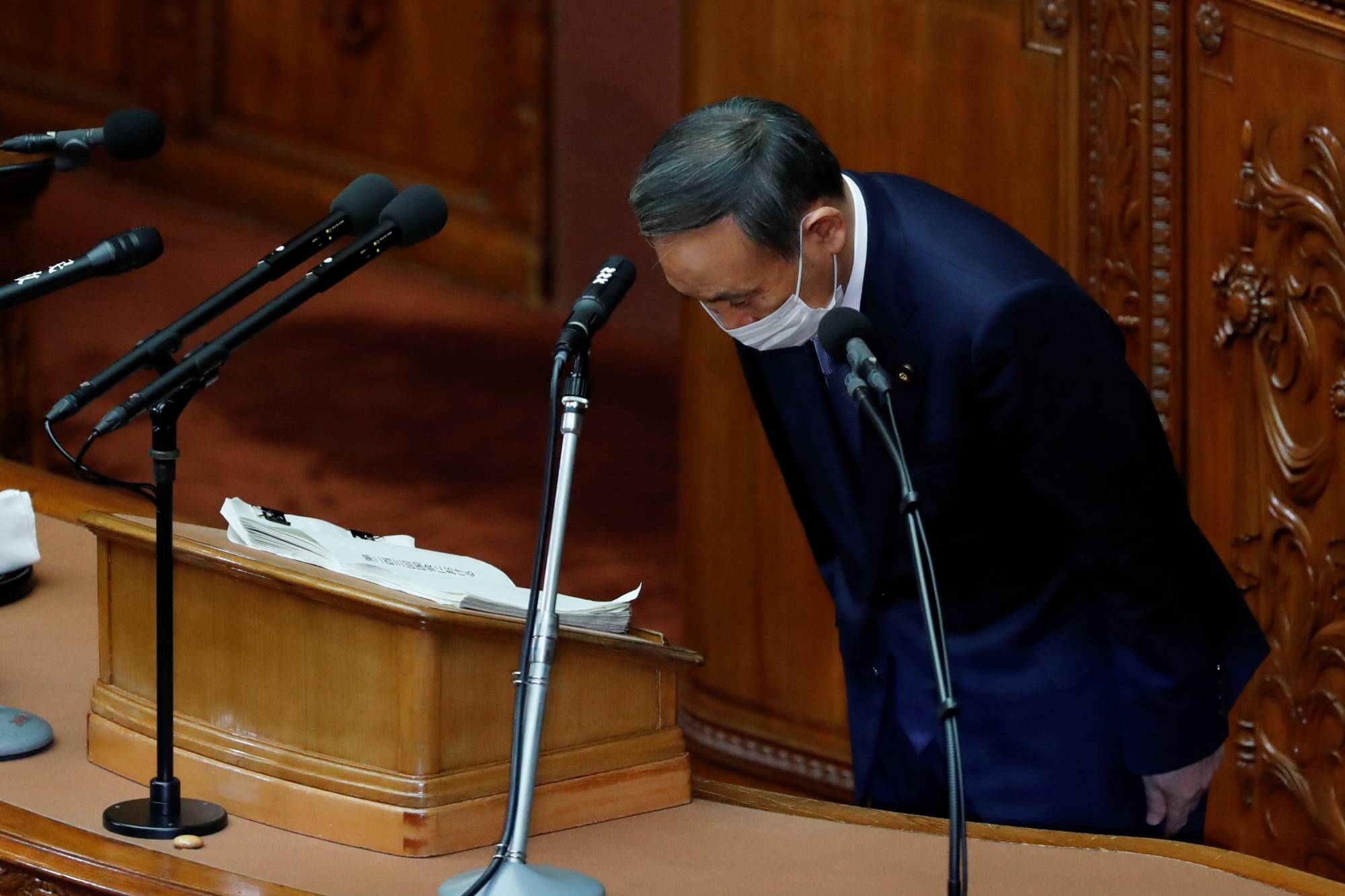In his first policy speech to the Diet since taking office last month, Prime Minister Yoshihide Suga pledged to achieve zero emissions of greenhouse gases and realize a carbon-neutral society by 2050. It’s a bold commitment, a stark contrast to his image as a staid and cautious politician. Achieving that goal will not be easy, but the objective is both smart and realizable.
Suga’s speech has been applauded, but he was only aligning Japan with 120 other countries that have said that they too would achieve net-zero carbon dioxide emissions by 2050. His predecessor, Shinzo Abe, promised to reduce greenhouse gas emissions by 80% and reach carbon neutrality in the second half of this century. Suga was reportedly pushed to do more by Hiroshi Kajiyama, minister of economy, trade and industry, and Shinjiro Koizumi, the environment minister — the outward faces of Japan’s energy and environmental policies — both of whom know well the diplomatic cost of their government’s failure to lean forward on this issue.
As the world’s third largest economy, Japan has huge energy needs. Domestic supplies are limited — the country produces just 9% of its needs — so it relies on imports of fossil fuels, oil and coal primarily, but also natural gas, to satiate that appetite. Japan hoped nuclear energy would reduce reliance on imports and those highly polluting fuels, but the 2011 Fukushima nuclear power plant accident forced the government to shelve those plans.

















With your current subscription plan you can comment on stories. However, before writing your first comment, please create a display name in the Profile section of your subscriber account page.